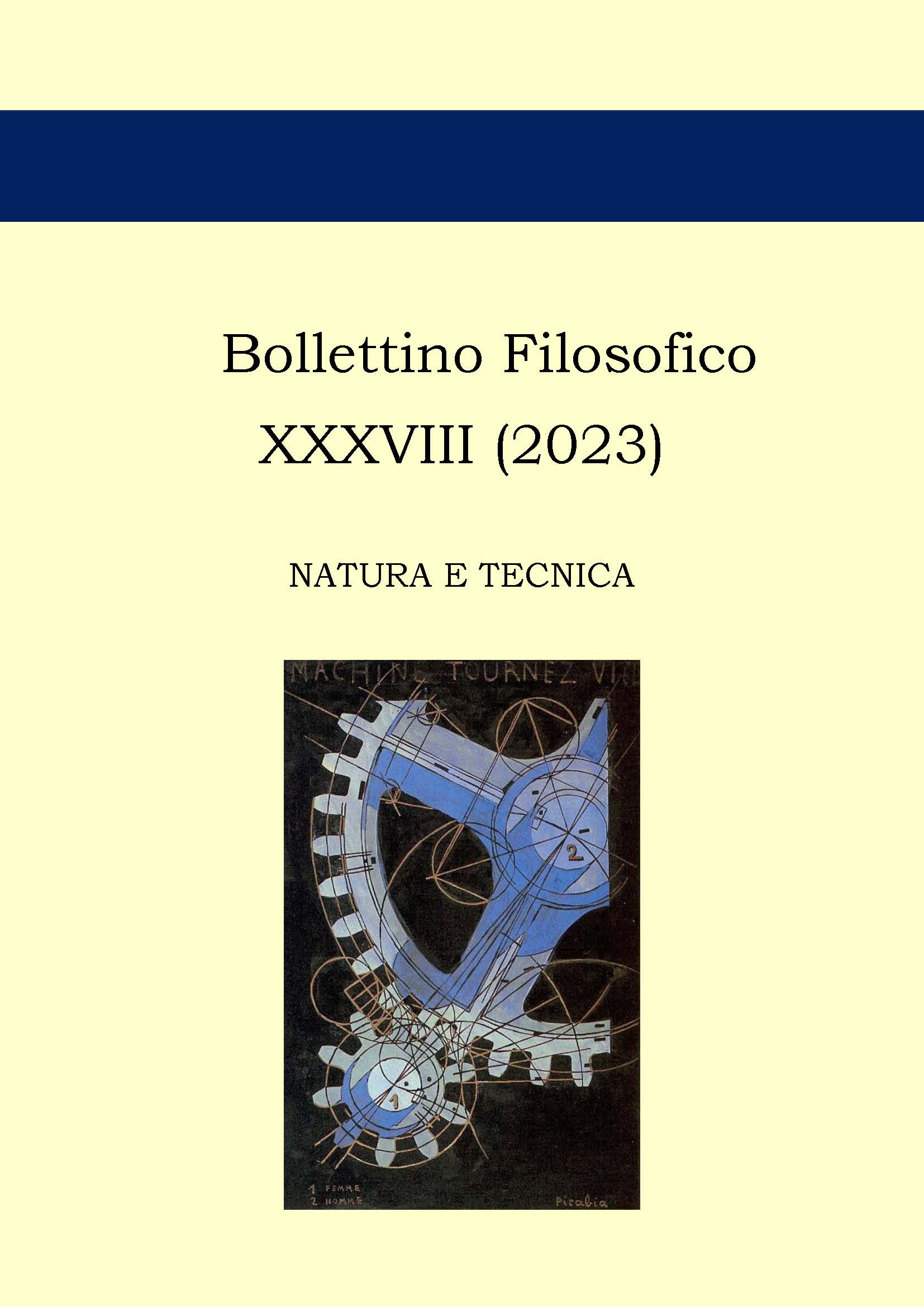Una macchina per produrre dei. Da Heidegger a Bergson
Abstract
In the Protagoras myth, which inspired twentieth-century reflection on technology, the machine is presented as a prosthesis. It must make up for the “lack” that is distinctive of the human being in contrast to the other living species. Technology is thus included in the horizon of the Aristotelian Poiesis, of work, and is assigned to the human sphere alone. The possibility is feared that the machine could transform man into its appendage, annihilating his sovereignty. In Bergsonian philosophy, machines are instead treated as organs of life, in continuity with the causality of nature. That is, technology is included in the horizon of the Aristotelian Praxis and the human agent is seen as an operator of the natural machine. Mechanics and mysticism share the same vital drive that runs through matter. Thus, Bergson provides the basis for a cosmological consideration of technology (cosmotechnics) and for a “general organology” that is radically opposed to Heidegger’s anthropological-existential conception of technology.
Keywords: Cosmotechnics, Homme-Machine, Mysticism, Organology, Power
Downloads
Bollettino Filosofico pubblica in internet, ad accesso aperto, con licenza:
|
|
CCPL Creative Commons Attribution |
L'autore conserva il copyright sul suo contributo, consentendo tuttavia a chiunque "di riprodurre, distribuire, comunicare al pubblico, esporre in pubblico, rappresentare, eseguire e recitare l'opera", purché siano correttamente citati l'autore e il titolo della rivista. L’autore, al momento della proposta di pubblicazione, è inoltre tenuto a dichiarare che il contenuto e l’organizzazione dell’opera è originale e non compromette in alcun modo i diritti di terzi, né gli obblighi connessi alla salvaguardia di diritti morali ed economici di altri autori o di altri aventi diritto, sia per testi, immagini, foto, tabelle, sia per altre parti di cui il contributo può essere composto. L’autore dichiara altresì di essere a conoscenza delle sanzioni previste dal codice penale e dalle leggi speciali per l’ipotesi di falsità in atti ed uso di atti falsi, e che pertanto Bollettino Filosofico è esente da qualsiasi responsabilità di qualsivoglia natura, civile, amministrativa o penale, e sarà dall'autore tenuta indenne da qualsiasi richiesta o rivendicazione da parte di terzi.
